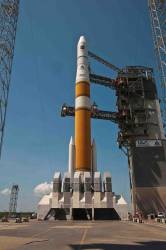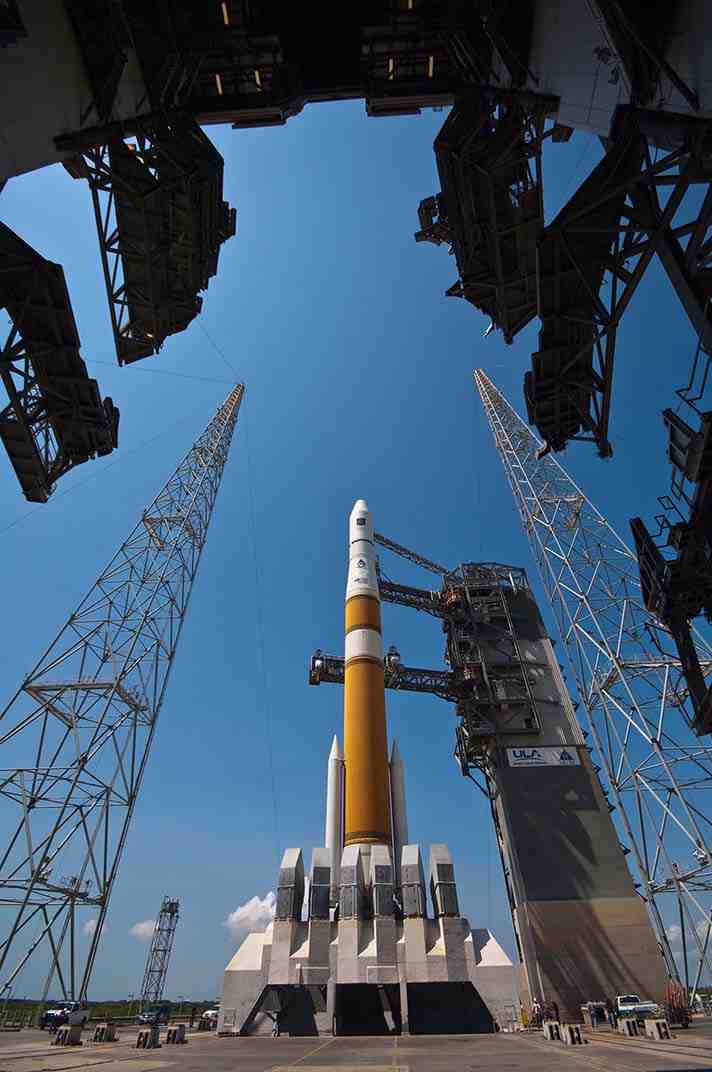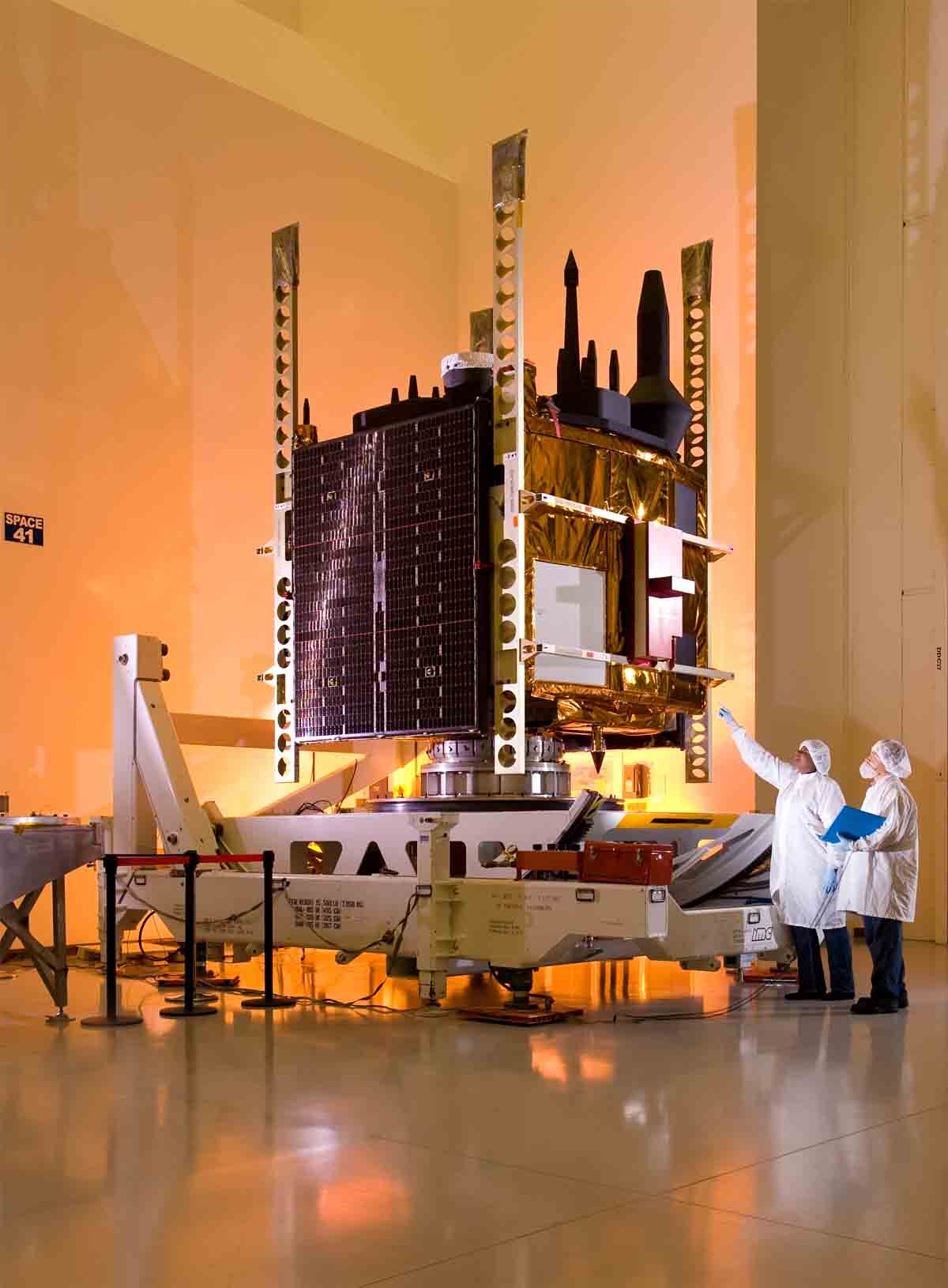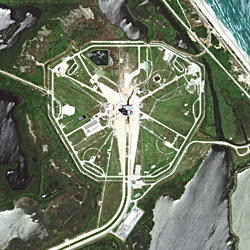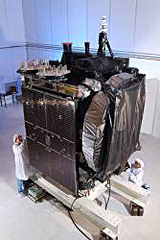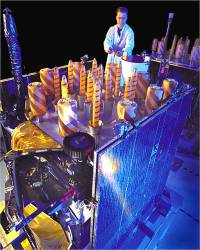IIF SV1 Launch: Cancellation No. 4 and Counting
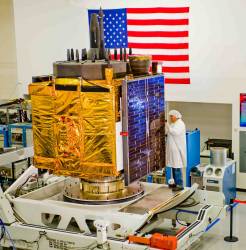 A Boeing technician works on a GPS IIF satellites moving through the “pulse line” at the company’s Satellite Development Center in El Segundo, California. Boeing photo
A Boeing technician works on a GPS IIF satellites moving through the “pulse line” at the company’s Satellite Development Center in El Segundo, California. Boeing photo (UPDATED May 25) The next launch attempt of the first GPS IIF space vehicle (SV1) has been tentatively set at Cape Canaveral for Thursday, May 27, when the launch window will be 11-11:19 p.m. EDT.
Originally scheduled for May 20, the launch was delayed several times. The fourth launch attempt was scrubbed Sunday night.
By Inside GNSS
